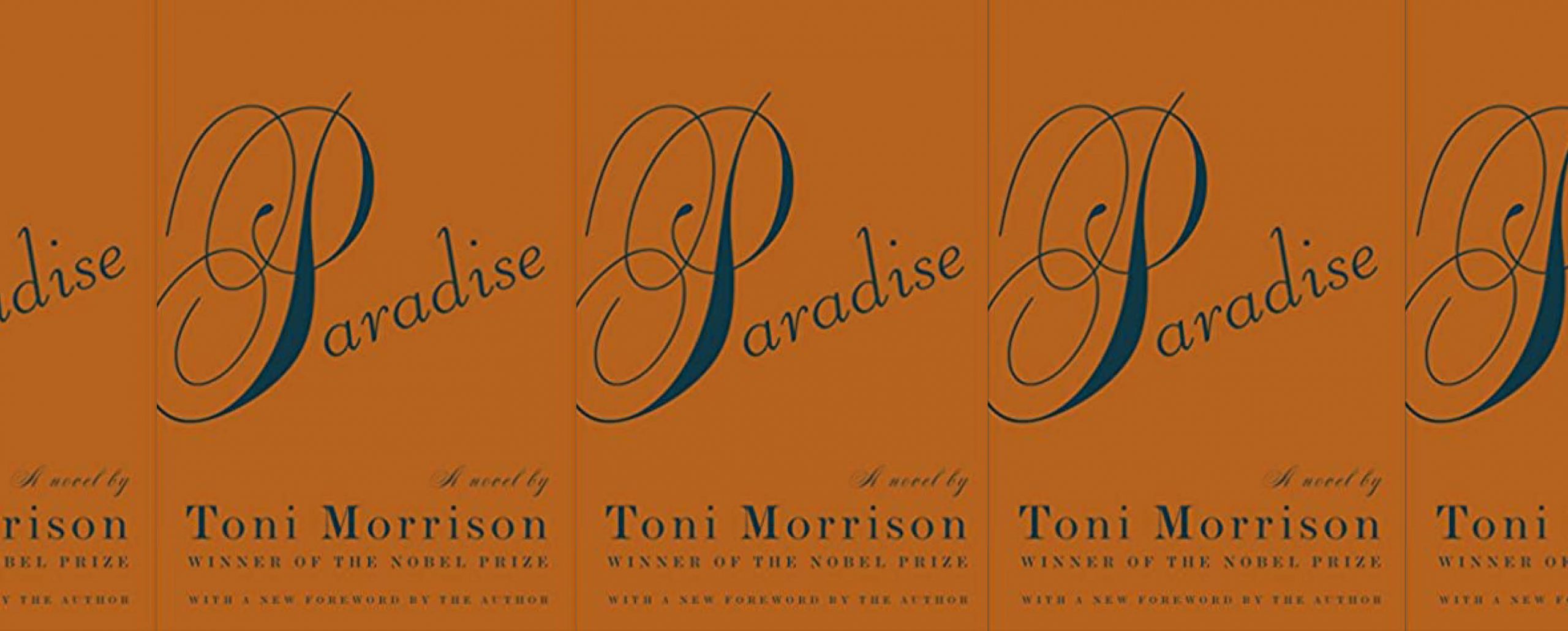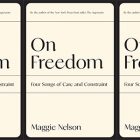The Danger of Unbound Women in Toni Morrison’s Paradise

“Out yonder all slithery in a house full of women. Not women locked safely away from men: but worse, women who chose themselves for company, which is to say not a convent but a coven.”
In the prologue of her 1997 novel, Paradise, Toni Morrison tells us of the world she has built, a small Black town called Ruby, that is “all about its own race—preserving it, developing myths of origin, and maintaining its purity.” Formed by freed slaves who wanted to create their own paradise and utopia away from the tyranny of whiteness, the forefathers of Ruby, an original convoy of seventy-nine people, trekked through post-Reconstruction Oklahoma to settle on virgin land and build their new community based on God and racial purity. Ruby as a town is one that eschews white supremacy and subverts the pigmentocracy of colorism, meaning that dark skin is viewed as most beautiful and valuable, to the extent that being mixed race is viewed as some form of racial pollution. Black is supreme. But even in this racial utopia, promising freedom and prosperity for Black people, women are still oppressed by notions of conformity, domesticity, and propriety. The chains of racial domination may be loosened but those of gender domination are stronger than ever.
Contrary to this racially pure and heavily religious society of Ruby, there exists a place in which women exist unbound called the Convent. Located a few miles away from Ruby, it is a haven for women who have unshackled themselves from notions of goodness, women who are runaways, lost or in need of a place to stay when the demand of being a good woman is too heavy to bear. Steeped in the religious ideology of women being sinful, the women of the Convent are referred to as “bodacious black Eves unredeemed by Mary.”
The novel progresses in eight chapters, each one revolving around women as they enter the Convent with their demons and their joys. The first of them is Mavis, a woman who runs away from her husband’s house, abandoning her family after she accidentally kills her twins by leaving them in a car on a hot day to buy the special meat her husband demanded to eat. (It is of note that she is in servitude to her husband and in pursuit of being a “good” wife when this tragedy occurs.) She steals her husband’s mint green Cadillac and runs away at the break of dawn. In every sense of it, Mavis is a “bad” woman, and yet as soon as we meet her, we are drawn to her, rooting for her. Morrison is not a stranger to creating characters of this nature. Her protagonist in Sula sleeps with her best friend’s husband, and in Beloved, Sethe is a murderer as much as she is a mother, wielding both blood and breastmilk. A woman is never only one thing. Morrison is intentional in creating these multidimensional women who refuse to be placed into any boxes. The monolithic understanding of women as good and subservient is immediately shattered in the novel, leaving room for the untethered existence of women.
In the first few moments Mavis enters the convent, Consolata (Connie, the Convent leader) speaks: “Lies not allowed in this place. In this place, everything true is okay.” An utterance steeped in significance for women, because performance and pretense are a bedrock of our existence and a life steeped in truth is revolutionary and radical. And terrifying to the powers that be.
Gigi is the next to arrive. A scantily clad, boisterous woman, “serving up her breasts like two freshly baked Alaskas on a platter,” shocking the whole of Ruby to the core when she turns up on a bus. Immediately, she becomes aware that there is no place for a woman like her within that society. Inevitably, she finds herself in the Convent. Gigi, who later lounges outside the Convent entirely unclothed, and keeps “herb” in her bag, is a direct affront to the notions of propriety and purity in women. In our world today, even in some feminist spaces, respectability politics dictate that only women who are modest, demure, and coy are worthy. In the documentary, Toni Morrison: The Pieces I Am, Morrison speaking of her time in Howard University as a young lady, laughingly and even almost fondly referred to herself as “loose,” a word typically used to refer to sexually liberated women as a means to shame them. Hearing her reclaim the word felt to me like a direct rebuke to the slut-shaming of women who seek pleasure with their bodies. She was saying that women need not be demure or coy, that women can be audacious in their demands for pleasure while moving through this world with the utmost confidence. Watching her say those words both anchored and liberated me, especially because in my country of birth, Nigeria, audacious sexual exploration remains taboo, remains uncouth, and Gigi as a character basks in her sexuality and makes no attempts to flatten herself into submission.
After Gigi, Seneca, a runaway jilted by a lover who nearly ruined her, arrives at the Convent in search of succor. And finally, Pallas, a deeply troubled young girl, carrying oceans of trauma arrives, too broken to even speak, coaxed into speech only when seated on Connie’s lap. These women come and go from the Convent, tending to their wounds and to themselves, and in the freedom, they become more authentic versions of themselves. They fight and quarrel. One of them continues to self-harm, another dances in the shadows with her deceased children. They are by no means healed but they are free. Free to be their broken selves, free to mourn, free to be nude, free to come and go as they please.
Within this freedom, the women go to an important wedding in Ruby uninvited. One of the founding father’s children is getting married, and the women arrive, “piling out of the car like go-go girls: pink shorts, skimpy tops, see-through skirts, painted eyes, no lipstick; obviously no underwear, no stockings.” The inhabitants of Ruby are scandalized by their arrival and a dangerous seed is sown in their minds. Because they know that women who are that free, that unbounded, are dangerous. These women could bring Ruby down, so they had to be brought down first.
Morrison opens the book with: “They shoot the white girl first.” Their death is a foregone conclusion. For the women of the Convent, the cost of their freedom is their life. Shortly after the wedding, on the night before the Convent is invaded, in what is the most arresting scene of the book for me, the women of the Covent are dancing naked under the pouring rain. They have completely given themselves to a mystical freedom, one that freed them from every shackle of performance and propriety. The morning after, with dew still wet on the ground, as the women knead the bread they are to eat for breakfast, a party of men assail the Convent with plans to exterminate the “whores” that threaten to contaminate their pure and holy Ruby. What the men do not expect is for the women to fight back: hot broth is poured in their faces, ashtrays are bashed into their heads, knives are buried deep in their shoulders. Yet the men manage to kill all the women. Reaching that point in the novel, I ached with the heavy realization of a truth that seems to permeate every reality, every society, every culture and creed: women suffer if they do not conform.
As a woman born and raised in Nigeria, I have seen up close what it looks like for women who do not conform to what a “good” woman is—the social exclusion and ridicule—and for women who “deviate,” as far as queerness, the cost is so much heavier. A woman untethered to a man, or to children, is a threat, perceived as foul and incomplete. In Lagos today, it is not unheard of for single women to have to pose with fake husbands or with fake wedding rings to be able to rent an apartment. Married women are expected to endure every and any form of abuse, degradation, and loss of self in order to preserve their marriage. To be a good wife, a good woman. And what is a good woman except one whose back is bent in complete submission to men? Every single back that straightens upright and sheds “goodness” is punished. Morrison, being the god of the page that she is, refuses an ending of that nature in Paradise. After the women of the Convent have been killed, members of Ruby go back to retrieve their bodies but find nothing. Each body, and even Mavis’s Cadillac, has vanished. The men have no evidence of their destruction. This ending whispered to me a truth I have seen in the eyes of my mother, my aunties, of every woman that this world has tried to ruin: this world will always seek to destroy what it cannot control but we—women who are complex, broken, and breathing—cannot ever be destroyed. We snatch ourselves back in big and small ways, reaching for every freedom our hands can touch as long as there is breath in our lungs, and even thereafter.



